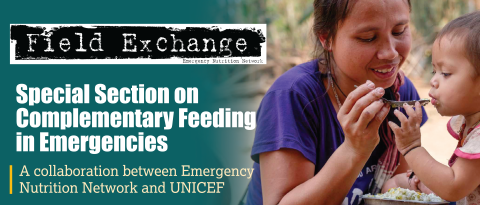en-net summary: Spring 2022
en-net is a free and open resource to help field practitioners to gain access to prompt technical advice for operational challenges for which answers are not readily accessible. This article summarises some of the key en-net posts and debates which took place during spring 2022.
Contributions
Ali Maclaine, Anon, Brooke Bauer, Everlyn Matiri, Justine Aenishaenslin, Lwiindi Madabwali, Muhammad Jaffar Ali and Syed Saeed Qadir
Over the past three months (March to May 2022), 35 questions were posted on en-net, generating 113 responses. The forum area for Infant and young child feeding interventions generated most discussions, followed by the Management of wasting/acute malnutrition and Assessment and Surveillance areas. Twenty-six vacancy notices and announcements were posted which accumulated 21,865 views on the website and three training announcements attracted over 3,000 views.
This update has chosen to highlight one particular question of interest raised in the Infant and young child feeding interventions area which sought experiences of interventions or programmes that have involved religious leaders as a core component to disseminate maternal, infant and young child nutrition (MIYCN)/infant and young child feeding (IYCF) messages, for example through sermons or khutbah, or where support groups were led by or in part by religious leaders.
Models were also sought of approaches whereby a religious leader's wife might support her husband by leading meetings and providing counselling and messaging for women, while the religious leader would communicate with men’s groups.
Several examples were shared from different contexts.
World Vision’s model, Channels of Hope, which is used to engage faith/religious leaders to support behaviour changes, includes a module on maternal, newborn and child health, Channels of Hope for Maternal, Newborn and Child Health.
Catholic Relief Services have a multi-country project, Strengthening the Capacity of Women Religious in Early Childhood Development (SCORE-ECD), which, through their congregations, reinforces the capacity of Catholic Sisters who help families to understand the importance of nutrition, feeding and communicating early and effectively with their children. Catholic Relief Services have also developed other models engaging directly with religious leaders on MIYCN.
In Punjab, Pakistan, the Multi Sectoral Nutrition Center (MSNC) is implementing a Multi Sectoral Nutrition Strategy and has oriented government institutions on nutrition sensitive and specific interventions, applying a nutrition lens to the annual development budgeting. MSNC has a strong nutrition governance element whereby District, Tehsil and Union Council Malnutrition Addressing Committees are playing a pivotal role in engaging government departments. As part of this, MSNC has engaged the Religious and Auqaf Department to raise awareness of the population attending Jumma prayers. It has developed information, education and communication (IEC) material and trained Ulema (Islamic scholars) and Khateebs (orators) to deliver information during Jumma sermons.
Research findings from 10 years ago by Save the Children in Afghanistan were also shared. This research examined where mothers obtained information and support on breastfeeding and found that religious leaders were their number one source of information: women would talk to their husbands who would speak to the Mullah (mosque leader) and report back. The Mullah tended to give the mothers a ta’wiz – religious words written on a piece of paper and sewn into clothes or kept on a necklace. The mothers reported that this worked. Recommendations of the research were to examine ways to give the Mullahs some basic breastfeeding information that they could relay to the husbands and mothers.
More recently in Afghanistan, Welthungerhilfe (WHH) reported a number of interventions involving religious leaders as a core component for their MIYCN/IYCF approach. An article detailing this work has previously been published in Field Exchange, https://www.ennonline.net/fex/nutritioninquran.
The discussants confirmed the value of these types of approaches. They may be especially useful in influencing feeding practices in populations with strong cultural beliefs or traditional practices that have been a hindrance in improving MIYCN practices despite significant capacity building attempts by health workers and communities. It was suggested that religious leaders might influence the community on breastfeeding as a right of the child in their sermons and through community engagement, as well as in imparting information on best practices. Respecting the rights of the mother would also need careful consideration in such a scenario.
To read more or to join this discussion, go to https://www.en-net.org/question/4567.aspx
To join any discussion on en-net, share your experience or post a question, visit www.en-net.org.uk or www.fr.en-net.org
For any feedback on the site, please write to post@en-net.org


